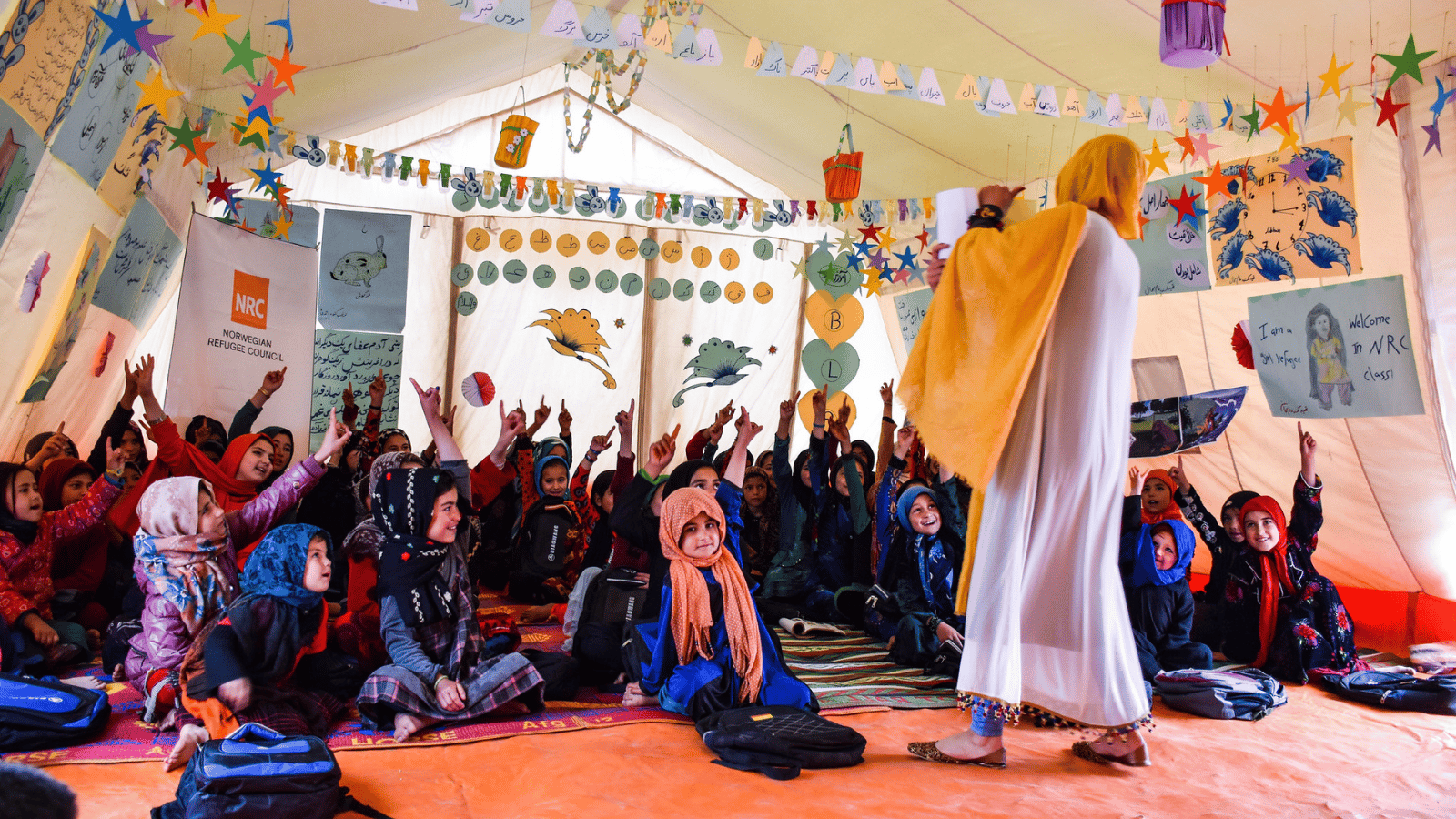As United Nations (UN) agencies and international humanitarian NGOs negotiate with the Taliban over their ban on women aid workers, this virtual roundtable held on 10 February 2023 explores where to draw red lines for humanitarian aid to Afghanistan.
Ought humanitarian operations be halted in response to the Taliban decree of 24 December 2022? Which new guidelines on this issue from the Afghan authorities would be acceptable? In this roundtable, these questions are explored from an ethical perspective: not asking what is strategic for humanitarian agencies but what is best for the Afghan people all things considered. As such, the roundtable is also an exploration of ethics of humanitarian action in general.
You can also listen to the discussion on the NCHS Talking Humanitarianism podcast below and on Spotify, Apple and Anchor.
This roundtable is the second in a series on the ethics of humanitarian action, and follows the earlier roundtable on the ethics of humanitarian neutrality in Syria. This roundtable was chaired and organised by Kristoffer Lidén at the Peace Research Institute Oslo (PRIO) and Norwegian Centre for Humanitarian Studies (NCHS) in collaboration with the Oxford Institute for Ethics, Law and Armed Conflict (ELAC) and Institute for International Law of Peace and Armed Conflict (IFHV). The webinar series is part of the research project Red Lines and Grey Zones: Exploring the Ethics of Humanitarian Negotiation.
Hugo Slim is a Senior Research Fellow at the Las Casas Institute and Academic Director of the Oxford Consortium for Human Rights. Slim has previously been a Senior Research Fellow at the Institute of Ethics, Law and Armed Conflict at the University of Oxford, as well as Head of Policy and Humanitarian Diplomacy at the International Committee of the Red Cross (ICRC).
Mukesh Kapila is Professor of Global Health and Humanitarian Affairs at the University of Manchester. He was previously Under Secretary General at the International Federation of Red Cross and Red Crescent Societies and served the UN in different roles as Special Adviser to the UN High Commissioner for Human Rights in Geneva and then Special Adviser at the UN Mission in Afghanistan. Subsequently, he led the UN’s mission in 2003-4 as the United Nations Resident and Humanitarian Coordinator for the Sudan, and then became a Director at the World Health Organization.
Fatima Gailani is an Afghan political leader and women’s rights activist, who previously served as president of the Afghan Red Crescent Society. She was recognised as one of the BBC’s 100 women of 2021.
Kristoffer Lidén is a Senior Researcher at PRIO and the NCHS. His research centres on the ethics of international affairs, with a focus on the fields of peacemaking, humanitarian action, security and digital technologies. He currently leads the Red lines and grey zones: Exploring the ethics of humanitarian negotiations project.
Hugo Slim: Humanitarians Must Reject the Taliban’s Misogyny
Mukesh Kapila: By halting aid over Afghanistan’s absurd gender rules, agencies let the Taliban win
Orzala Nemat: Afghanistan’s freezing winter: humanitarian crisis and the Taliban’s ban on women aid workers
UN OCHA Press briefing 30 Jan 23: Afghanistan: “We need to see women aid workers back at work”
To cite this webinar: Lidén, K., Slim, H., Kapila, M., & Gailani, F. (2023, 10 February). Red lines for humanitarian aid in Afghanistan. [Webinar]. Norwegian Centre for Humanitarian Studies and Peace Research Institute Oslo. www.humanitarianstudies.no/events/red-lines-for-humanitarian-aid-in-afghanistan/.
